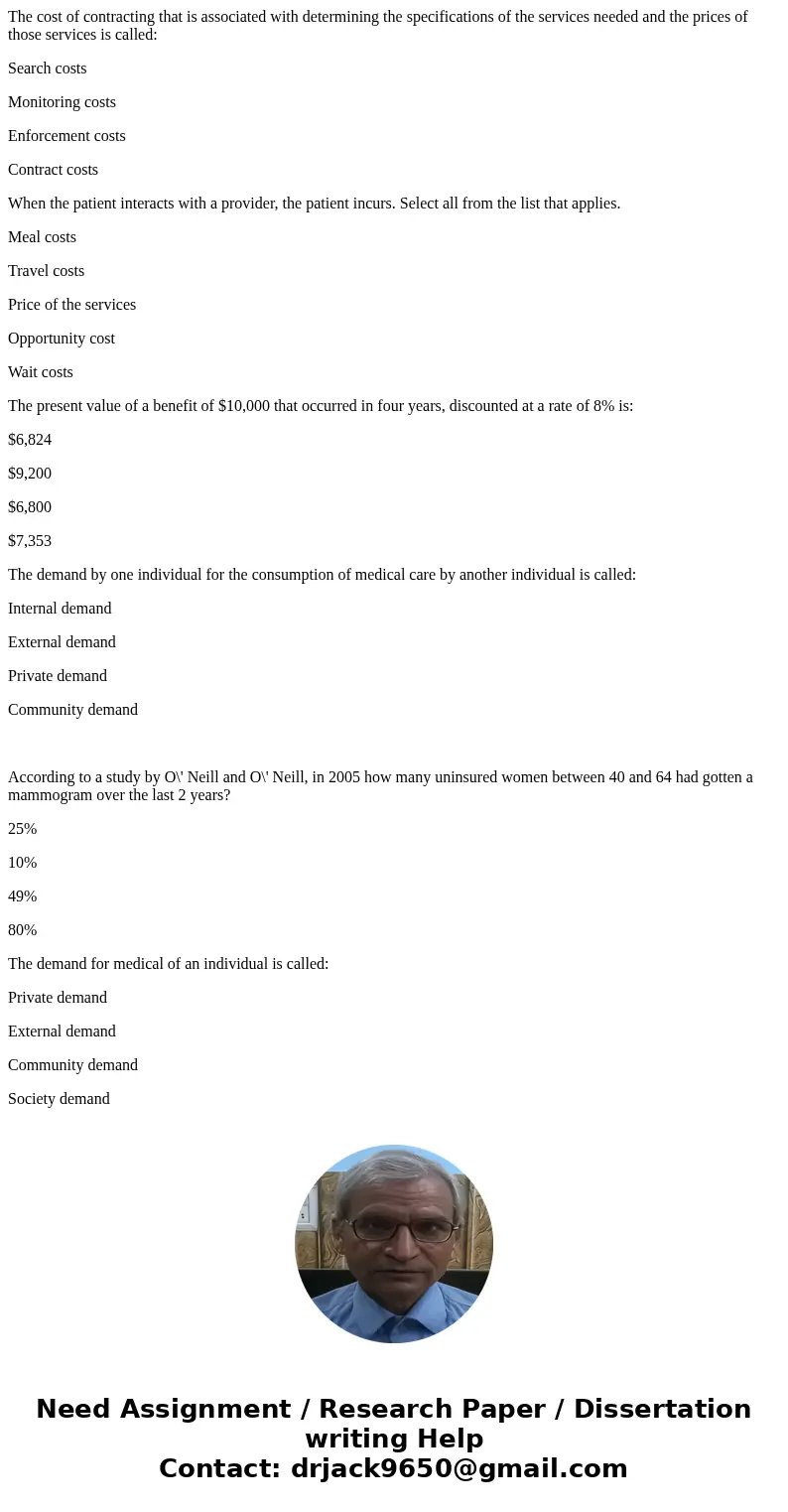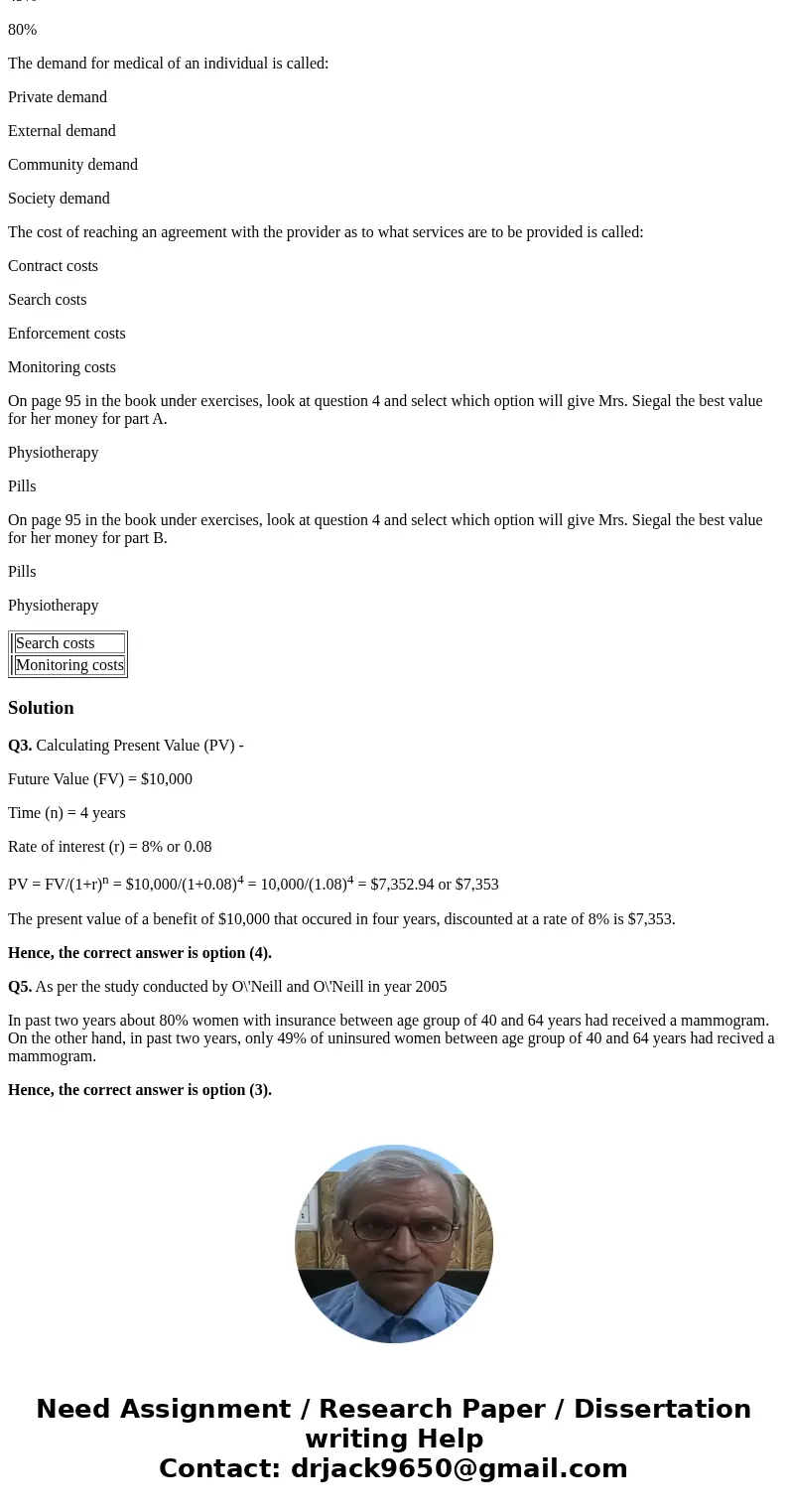The cost of contracting that is associated with determining
The cost of contracting that is associated with determining the specifications of the services needed and the prices of those services is called:
Search costs
Monitoring costs
Enforcement costs
Contract costs
When the patient interacts with a provider, the patient incurs. Select all from the list that applies.
Meal costs
Travel costs
Price of the services
Opportunity cost
Wait costs
The present value of a benefit of $10,000 that occurred in four years, discounted at a rate of 8% is:
$6,824
$9,200
$6,800
$7,353
The demand by one individual for the consumption of medical care by another individual is called:
Internal demand
External demand
Private demand
Community demand
According to a study by O\' Neill and O\' Neill, in 2005 how many uninsured women between 40 and 64 had gotten a mammogram over the last 2 years?
25%
10%
49%
80%
The demand for medical of an individual is called:
Private demand
External demand
Community demand
Society demand
The cost of reaching an agreement with the provider as to what services are to be provided is called:
Contract costs
Search costs
Enforcement costs
Monitoring costs
On page 95 in the book under exercises, look at question 4 and select which option will give Mrs. Siegal the best value for her money for part A.
Physiotherapy
Pills
On page 95 in the book under exercises, look at question 4 and select which option will give Mrs. Siegal the best value for her money for part B.
Pills
Physiotherapy
| Search costs | |
| Monitoring costs |
Solution
Q3. Calculating Present Value (PV) -
Future Value (FV) = $10,000
Time (n) = 4 years
Rate of interest (r) = 8% or 0.08
PV = FV/(1+r)n = $10,000/(1+0.08)4 = 10,000/(1.08)4 = $7,352.94 or $7,353
The present value of a benefit of $10,000 that occured in four years, discounted at a rate of 8% is $7,353.
Hence, the correct answer is option (4).
Q5. As per the study conducted by O\'Neill and O\'Neill in year 2005
In past two years about 80% women with insurance between age group of 40 and 64 years had received a mammogram. On the other hand, in past two years, only 49% of uninsured women between age group of 40 and 64 years had recived a mammogram.
Hence, the correct answer is option (3).


 Homework Sourse
Homework Sourse